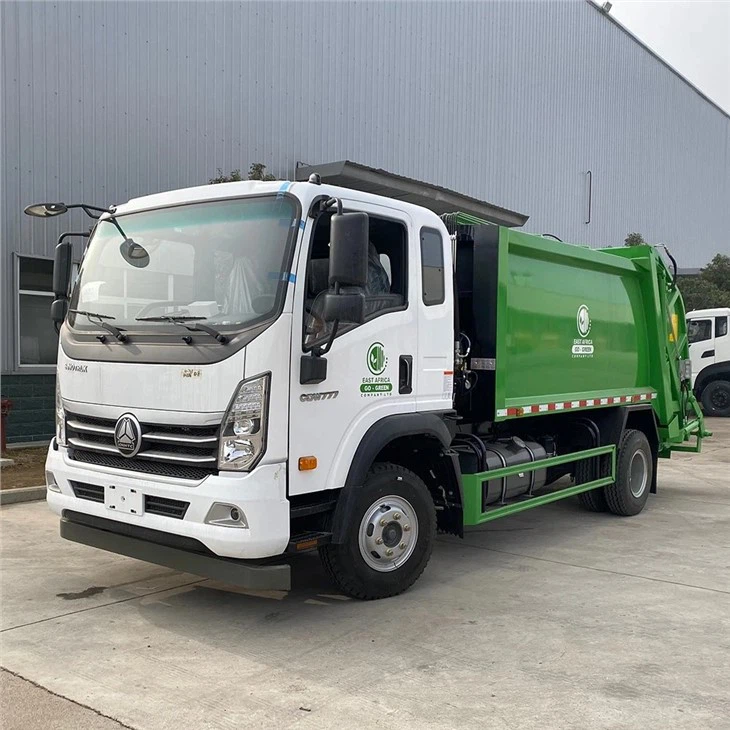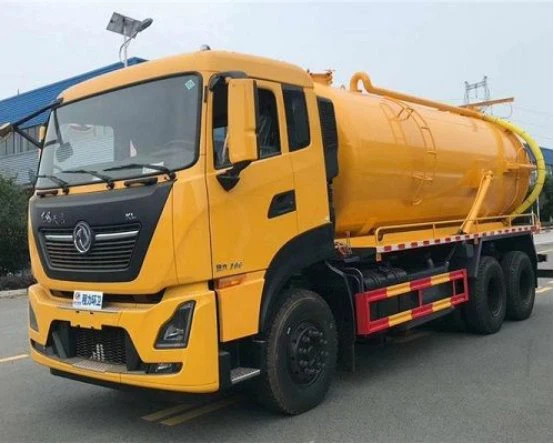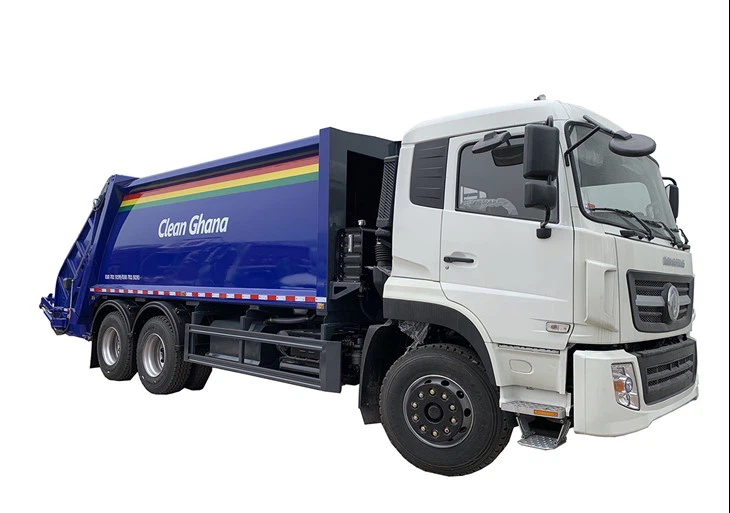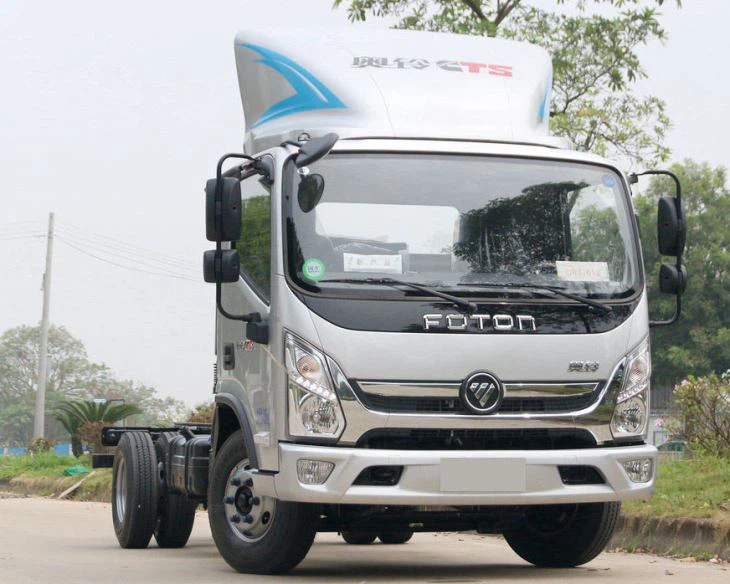Introduction
A 5 ton box truck is an essential vehicle for businesses and individuals alike, serving various purposes from moving furniture to transporting goods for commercial enterprises. These trucks offer ample cargo space and are designed to handle heavier loads, making them a practical solution for logistics. In this comprehensive guide, we will delve into the key features, benefits, and uses of 5 ton box trucks, along with practical tips and a detailed FAQ section to answer your questions.
What is a 5 Ton Box Truck?
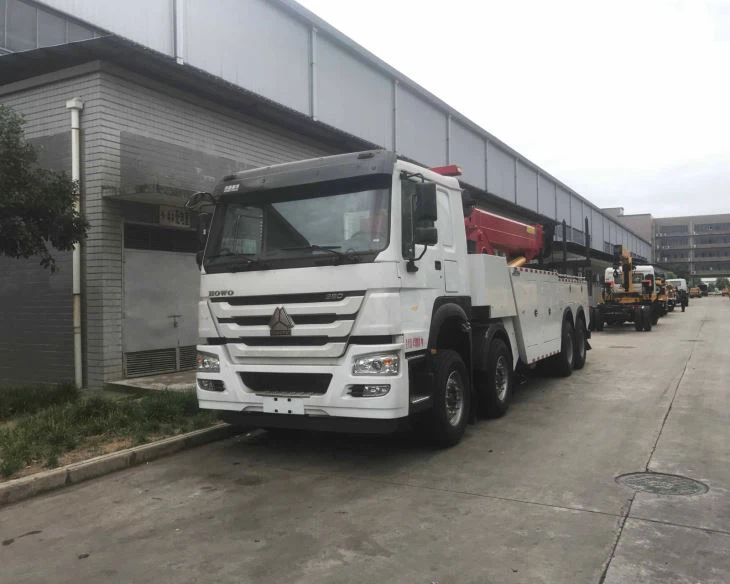
A 5 ton box truck, also referred to as a 5 ton truck or panel truck, is a medium-duty vehicle equipped with a box-shaped cargo area. It is capable of carrying a payload of approximately 5 tons (or about 10,000 pounds). These trucks are commonly used for various transportation needs, including moving services, delivery fleets, and general transportation for businesses.
Key Features of a 5 Ton Box Truck
- Cargo Space: Typically, the box of a 5 ton truck measures between 14 to 26 feet in length, providing substantial room for cargo.
- Weight Capacity: Designed to handle up to 5 tons, making it suitable for heavy lifting.
- Driveability: Most models are equipped with automatic transmissions and advanced steering systems for easier handling.
- Loading Options: Many 5 ton trucks come with a rear lift gate, providing options for loading and unloading heavy items smoothly.
Types of 5 Ton Box Trucks
There are several varieties of 5 ton box trucks designed to meet specific needs. Understanding your options can help you select the right vehicle for your requirements.
Standard Box Truck
This is the most common type of 5 ton box truck, featuring a straight box design ideal for traditional cargo transport.
Refrigerated Box Truck
Also known as a reefer truck, this variant is equipped with refrigeration units and is perfect for transporting perishable goods such as food items.
Contractor Box Truck
These trucks often come with additional features like toolboxes and shelving. They are designed specifically for contractors who need to transport tools and equipment.
The Benefits of Using a 5 Ton Box Truck
Using a 5 ton box truck brings numerous advantages for businesses and individuals. Below are some key benefits:
1. Increased Payload Capacity
The truck’s capacity to carry up to 5 tons allows for transporting larger consignments without the need for multiple trips.
2. Versatile Usage
5 ton box trucks can be utilized for various applications, including moving households, delivering goods, or as service vehicles for tradespeople.
3. Cost-Effective Option
When compared to heavier trucks, a 5 ton box truck often has better fuel efficiency, leading to lower operating costs.
4. Easy Maneuverability
These trucks are generally easier to drive and maneuver in urban settings than larger vehicles, making them suitable for city transportation.
Choosing the Right 5 Ton Box Truck
Selecting the correct 5 ton box truck involves considering several factors that align with your needs. Here are some key considerations:
1. Purpose
Define the primary use of the truck—whether for residential moving, commercial cargo transport, or specialized jobs like refrigeration.
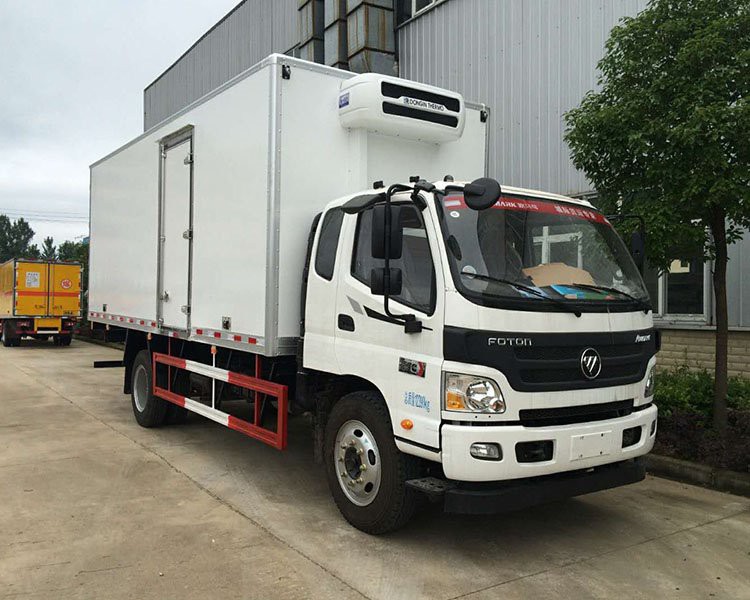
2. Size and Dimensions
| Truck Length | Cargo Volume | Height |
|---|---|---|
| 14 feet | About 500 cubic feet | 7-8 feet |
| 20 feet | About 1200 cubic feet | 8-9 feet |
| 26 feet | About 1600 cubic feet | 10-11 feet |
3. New vs. Used
Deciding between a new or used truck involves considering budgets and reliability. New trucks offer warranties, while used trucks can be more economically viable.
4. Fuel Type
Most box trucks run on gasoline or diesel. Consider the fuel costs and availability of service stations while choosing your truck.
Maintenance Tips for 5 Ton Box Trucks
Proper maintenance ensures the longevity and efficiency of 5 ton box trucks. Here are some essential maintenance tips:
1. Regular Inspections
Conduct checks on essential components such as brakes, lights, and tires on a routine basis. Early detection of problems can prevent costly repairs.
2. Fluid Checks
Regularly check and change engine oil, transmission fluid, brake fluid, and coolant to ensure optimal performance.
3. Tire Maintenance
Inspect tire pressure and tread depth frequently to avoid blowouts and improve fuel efficiency.
4. Clean the Interior and Exterior
Keep the truck clean from dirt and grime. This helps maintain a professional appearance and can prevent rust and damage.
Insurance Considerations for 5 Ton Box Trucks
Like any vehicle, 5 ton box trucks require appropriate insurance coverage. Here are some key aspects to consider:
1. Liability Coverage
This is a mandatory insurance that covers damages to others in case of an accident.
2. Cargo Insurance

Insurance that provides coverage for the goods being transported in case of damage or loss.
3. Physical Damage Insurance
This type of insurance protects against loss or damage to the truck itself, irrespective of fault.
4. Comprehensive Insurance
This covers non-collision-related incidents, including theft, vandalism, or natural disasters.
Financing Options for Purchasing a 5 Ton Box Truck
Acquiring a 5 ton box truck can be a significant investment. Here are some financing options available:
1. Loans from Banks or Credit Unions
Traditional lenders often provide vehicle loans that can help you purchase a truck outright.
2. Leasing Options
Leasing allows for using a truck for a set period while paying monthly fees, making it easier to access newer models.
3. Dealer Financing
Many truck dealerships offer financing options directly, simplifying the purchasing process.
4. Government Programs
For small businesses, various government programs may assist in financing or grants for vehicle purchases.
Best Practices for Loading and Unloading
To ensure safety and efficiency during the loading and unloading process, consider the following best practices:
1. Plan the Load
Strategically plan how to load the truck to ensure optimal weight distribution, which can improve handling on the road.
2. Use Proper Equipment
Utilize dollies, hand trucks, and pallet jacks for moving heavy items in and out of the truck.
3. Maintain Safety Protocols
Always wear appropriate safety gear and ensure the work area is clear of hazards to prevent accidents.
FAQ Section
What is the average fuel consumption of a 5 ton box truck?
The fuel consumption can vary but generally, a 5 ton box truck averages around 8-12 miles per gallon, depending on load weight and driving conditions.
Can I drive a 5 ton box truck with a regular driver’s license?
In many areas, a standard driver’s license is adequate to operate a 5 ton box truck. However, it’s essential to check local regulations, as some regions may have specific requirements.
How much does it cost to rent a 5 ton box truck?
Rental prices can vary widely based on location and rental duration, but expect to pay between $100 to $200 per day for a 5 ton box truck.
What is the lifespan of a 5 ton box truck?
With proper maintenance, a 5 ton box truck can last between 10 to 15 years, or even longer depending on usage and care.
Are there different wheelbase options for 5 ton box trucks?
Yes, 5 ton box trucks come with various wheelbase options, which can affect their maneuverability and cargo space capabilities.
What should I look for when buying a used 5 ton box truck?
Inspect the vehicle’s overall condition, mileage, maintenance history, and check for any signs of rust or previous damage before purchasing.
